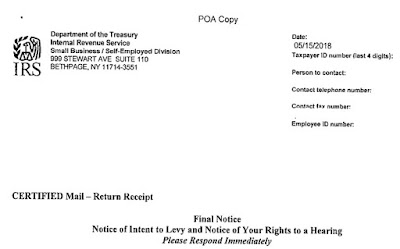There is something happening in the public accounting
profession. The profession itself is aging. The AICPA expected 75% of practicing
CPAs to reach retirement age by 2020 – which was four years ago. Many smaller firms
do not have succession plans, meaning that an owner’s retirement plan likely involves
being acquired by another firm. Fewer college students are pursuing accounting majors,
placing stress on recruiting and retaining accountants in the early years of
their career. We see firms releasing clients and sometimes entire lines of
practice. I know of one which released its trust work, which surprised me. I contributed
to this several years ago when we released our inbound (that is, international)
work. These clients still need professional advice, but fewer CPAs are
providing these services.
On the flip side, it is a great time for someone to
start (or grow) an accounting practice. A challenge here is step growth – that is, growth
that requires hiring. One circles back to the issue of the talent shortage. A
bad hire is damaging, perhaps even more so in a small firm.
Even the IRS is not immune to the talent shortage. In
2019 the IRS employed approximately 75,000 people. The Inflation Reduction Act supposedly
provided funds to hire an additional 87,000 people through the year 2031. It hasn’t,
of course, as the IRS is competing with every other employer in the market.
I suspect the profession has done much of the damage
to itself. One can easily point to the 150-hour requirement for a CPA license.
That may have made sense years ago, but with today’s exorbitant college costs
that additional year of class, books and housing might be difficult to justify.
And then we have the toxicity of the profession itself.
I cannot recall the last time that a CPA my age has not shared his/her “horror”
stories: the stress, hours, near-impossible deadlines, psychopathic personalities,
power dynamics and whatnot. I remember a managing partner bringing cigars so we
could “talk”; we sat outside, and he explained how infeasible it was for me to
visit my ailing grandmother in Florida. My grandmother died that year. I also left
the firm that year. I suspect Gen Z will not tolerate this behavior as passively,
and rightfully so.
Congress has greatly exacerbated the problem with its
never-ending and wildly metastasizing tax changes. It used to be that
accountants would spread their tax work over the course of the year by placing
their business clients on a fiscal year – that is, a tax year ending other than
December 31. This allowed work to be distributed more sanely over the year. Congress
changed this in 1986 by requiring almost everyone to use the calendar year.
Yes, there was an “out,” and the out was for the business to pay a “deposit” for
taxes it would have paid had it changed to a calendar year. I suspect that –
even if not a CPA – you can guess how well those client conversations went.
Combine that with Congress’ recent-enough 1099 reporting fetish and you have a crippling
steamroller than begins in January and ends … well, who know when.
I think we overstretched ourselves here at Galactic
Command this year. Potential clients are calling for appointments, and it can
be hard (for some of us) to say no. After the just-concluded September and October
extension deadlines, however, we must learn to say no. We do not have the
resources, and we are burning the resources – including me – that we do have.
Then there is AI – will artificial intelligence replace any/some/much of what a CPA does? Depending on what the accountant does, I suppose it is possible. First year audit work, for example, scarcely requires a 150-hour degree. That might be a viable onramp for AI. Then again, I remember when QuickBooks was going to put accounting services departments out of business. It didn’t, and accounting services is one of the most sought-after practice areas in accounting firms today. Will AI take away much of my 1040 workload?
I hope so.
